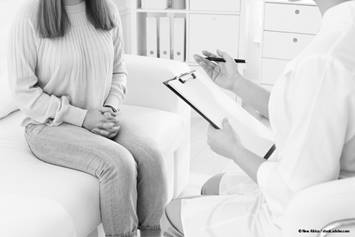Herpes Simplex Virus
Herpes is a common virus that can cause cold sores or genital sores. It spreads through skin-to-skin contact.
What Is Herpes Simplex Virus?
Herpes simplex virus (HSV) is a virus that causes infections. It is very contagious. There are two types of this virus. One type (HSV-1) usually causes sores around the lips or inside the mouth that are sometimes called fever blisters or cold sores. The other type (HSV-2) usually causes sores on the genitals (private parts). Either type can infect the mouth, genital area or another part of the body.
HSV spreads most easily when a person comes in direct contact with an infected person’s mucous membranes, saliva, or the oozing fluid from a sore. Mucous membranes are the moist skin that lines the inside parts of the body such as the mouth, nose and vagina. That is why it is extremely important not to kiss or have sex with anyone when herpes sores are present. However, HSV can be spread even when the infected person has no sores or obvious signs of infection. The herpes virus cannot live very long outside of the body. It is unlikely that you can get it from a toilet seat.
What Are Signs and Symptoms of Herpes?
Symptoms of herpes usually begin within 2 to 20 days after contact with the HSV virus. The skin becomes painful or it may itch, burn or tingle. Then one or more blisters appear. The blisters open and become sores. The sores turn crusty and heal slowly over 1 to 2 weeks. By 3 weeks, the sores have completely healed without leaving a scar. Sometimes flu-like symptoms, such as swollen glands, headache, body aches and fever also develop. For some, the symptoms may be so mild that the person does not get sores and may not even know that he or she is infected.
When the sores have healed and the skin looks normal again, the virus hides in the nerve cells under the surface of the skin. Once someone is infected with the herpes virus, he or she will have the infection for the rest of his life. The sores can come back at any time when you have a lot of stress, get too tired or have illness, irritated skin, sunburn or a poor diet. They can also come back during menstruation. Sometimes the sores can come back for no reason.
How Is Herpes Treated?
There is no cure for herpes.
- The health care provider may prescribe antiviral medicine to help speed up the healing process. It also shortens the time when the virus can spread from the herpes sores.
- Pain may be treated with medicine such as Tylenol (acetaminophen) or Motrin (ibuprofen) or by applying an ice pack wrapped in a towel to the affected area.
- If sores are in the mouth, avoid foods high in acid, like citrus fruits and juices.
- The infected area should be kept clean and dry.
- Wash hands often and avoid touching the sores to prevent spreading the virus.
- It is important to stay healthy by getting enough rest, having proper nutrition and exercise and managing stress well.
When to Call the Doctor
Even though HSV sores can hurt and be unsightly, most cases of herpes do not cause serious illness. The sores go away in a few days. Contact the health provider if:
- Sores are present and you think it might be a first herpes infection. The diagnosis is usually made by examining the sores. If the sores have not healed, sometimes a laboratory test is done.
- Sores do not heal by themselves or show signs of infection such as pus, spreading redness or fever.
- Sores are near the eyes.
- You have another health condition with a weakened immune system.
Other Important Points
During a flare-up:
- Avoid touching the sores or the skin around that area. Other parts of the body can become infected. Wash your hands with soap and water right away.
- Protect infants from being kissed by anyone with a cold sore. Babies can get very sick from HSV.
- Do not kiss anyone when mouth sores are present. Do not share things that may have touched the sores.
- Keep drinking glasses, eating utensils, washcloths and towels away from others. Wash these items thoroughly after use.
- Do not have sexual intercourse or oral sex until the sores are completely healed. Latex condoms and dental dams can reduce the risk of spreading or getting herpes. It is best to use them at all times when you have sex.
- If you get pregnant, it is very important to tell your doctor you have herpes. That way, precautions can be taken to keep the baby from coming in contact with the virus.
- In most cases, you can still go to school during a flare-up.
Helping Hands Patient Education Materials
Written and illustrated by medical, nursing and allied health professionals at Nationwide Children's Hospital, Helping Hand instructions are intended as a supplement to verbal instructions provided by a medical professional. The information is periodically reviewed and revised to reflect our current practice. However, Nationwide Children's Hospital is not responsible for any consequences resulting from the use or misuse of the information in the Helping Hands.
HH-I-174 | ©1993, revised 2/17, Nationwide Children’s Hospital



